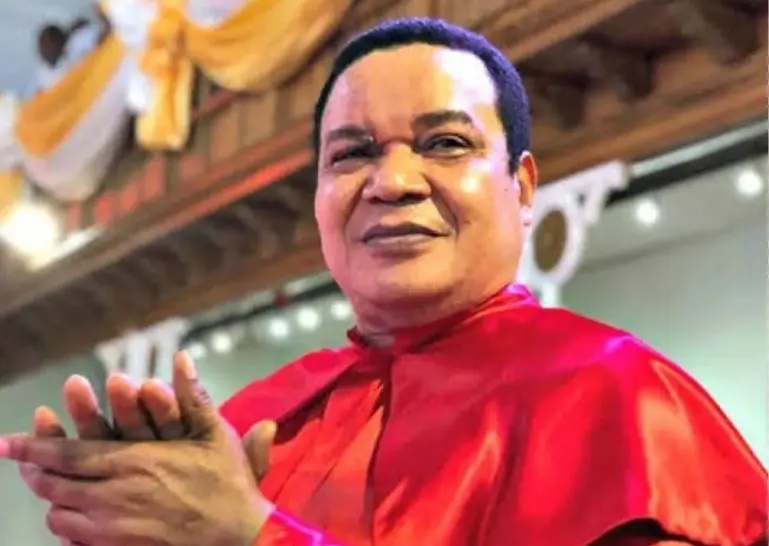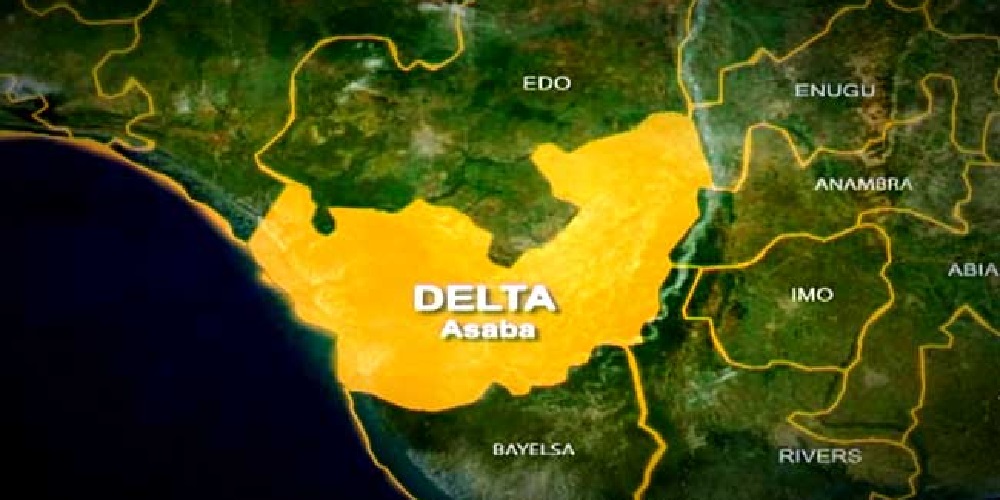News
Osun has right to mining -Adeleke declares

Osun State Governor, Ademola Adeleke, has reiterated the state’s legal right to collect taxes from Thor Explorations Limited, insisting that the company’s operations fall under the provisions of the Nigerian Constitution and applicable laws.
Adeleke, however, welcomed the intervention of the Federal Ministry of Mines in resolving the tax dispute, emphasizing the state’s willingness to support foreign investments, provided they operate transparently and adhere to local regulations, including environmental standards.
In a statement issued by his spokesperson, Olawale Rasheed, on Sunday, the governor disclosed that he had earlier reached out to the Minister of Mines, Dele Alake, regarding the ongoing dispute. He stressed that while Osun State is committed to encouraging Foreign Direct Investment, it must be on the condition that investors comply with local laws and take responsibility for environmental protection.
The governor lamented that since discussions with Thor Explorations began in 2023, no progress had been made, despite ongoing negotiations.
He revealed that Segilola Resources Operating Limited, a subsidiary of Thor Explorations, had accrued tax liabilities amounting to N3.25 billion, with a demand notice issued in April 2024.
Adeleke further alleged that Thor Explorations was operating six other companies on the same site without disclosing them to the state government for taxation and environmental accountability purposes.
The companies, according to the governor, include SINIC Engineering Limited, ATF Consulting Limited, Monument Nigeria Limited, Rabaa Cleaning Limited, Deep Rock Drilling Services, and CEFO Security Limited.
He also noted that Thor Explorations had confirmed Osun State holds 5,192,896 units of shares in Thor Exploration UK, and as such, the state is entitled to collect its financial benefits as a shareholder.
The governor expressed concern over the environmental degradation caused by the company’s mining activities and insisted that Thor Explorations must pay for the environmental reclamation of the affected areas, as required under Nigerian law.
“Osun State enjoys a strong partnership with the Federal Ministry of Mines. We hold several mining licenses and are key stakeholders in the sector with a deep understanding of both the laws and the constitution. Our actions are guided by the need to secure what is legally due to our state, as stipulated by existing laws and practices,” Adeleke stated.
He added, “We maintain a favorable business environment for investors across various sectors. However, we will not tolerate a lack of transparency and accountability in the mining sector. Local laws must be respected, just as they are in Europe and North America, and the environment must be properly reclaimed after mining activities.”
Adeleke further welcomed the visit of the Federal Government’s fact-finding team, stressing that Osun is prepared to present its case.
“Thor Explorations cannot use the exclusive legislative list as a shield to evade local taxes, deny shareholders their rights, and degrade our environment with impunity,” the governor concluded.
News
Brotherhood crisis turns violent as worshippers reject Olumba’s successor

The prolonged succession crisis in a Nigerian Christian religious sect, the Brotherhood of the Cross and Star, has festered on since its founder, Olumba Obu, passed away.
The crisis turned violent recently as angry worshippers in a particular branch in Uyo, Akwa Ibom State, became riotous, destroying the portrait of Olumba’s first son, Rowland, who leads a faction of the sect.
Olumba’s daughter, Ibum, leads another faction.
A video, which is being circulated on WhatsApp groups and Facebook, captured a man in a white cassock yanking off Rowland’s portrait from the wall and smashing it on the floor amid cheers from worshippers.
Rowland’s portrait was hung near Olumba’s, but the angry worshippers did not attack the latter.
“Bring it down!” a woman’s voice could be heard shouting in the background of the video as the man in a white cassock smashed the glass frame on the ground.
“This is who we are worshipping,” a man’s voice could be heard shouting repeatedly as the camera panned and then focused on Olumba’s portrait on the wall.
It is not clear when the incident happened.
Amah Williams, the sect’s spokesperson, said the incident happened in Uyo at the sect’s Nsikak Edouk Avenue branch.
Rowland and Ibum, with hundreds of their followers, are claiming the leadership of the 68-year-old sect after their father’s passing, causing a disastrous split in a once united and strong organisation headquartered in the Biakpan community in Cross River State, Nigeria’s South-south.
‘They are rebels’
Mr Williams, the sect’s spokesperson, told reporters on Saturday in Uyo that those responsible for the incident belong to a breakaway faction called Brotherhood of the Cross and Star New Kingdom Ministry.
He described them as rebels who do not want to accept Rowland’s leadership – he did not call Rowland by name as Olumba’s successor is revered among worshippers as “King of Kings and Lord of Lords, His Holiness Olumba Olumba Obu”.
“They are rebels. They rebelled; they rejected the rulership of the Kingdom of Christ,” Mr Williams told reporters.
“The holy image of our father is what we hold sacred,” he said, apparently referring to the destruction of Rowland’s portrait.
A reporter asked the spokesperson what place Jesus Christ occupies in the Brother of the Cross and Star.
“That same (Jesus) Christ is the one that came with the new name Olumba Olumba Obu,” responded.
“If Olumba were to be a white man, black men would have gone to worship on his feet.”
The over 1 million global members of the Brotherhood of the Cross and Star do not see themselves as a church but as the new Kingdom of God on Earth. They have also refused to admit that their founder had passed away as the sect has yet to announce his passing or publicly conduct his burial.
News
Tinubu’s reforms struggling to deliver meaningful results – IMF

Eighteen months after the implementation of Nigeria’s ongoing economic reforms, the International Monetary Fund (IMF) has observed that the fiscal policies introduced by the President Bola Tinubu administration are struggling to deliver meaningful results.
Catherine Patillo, IMF Deputy Director, while presenting a report at the Lagos Business School (LBS) on Friday, reported a mixed performance of economic reforms across Sub-Saharan Africa, with notable successes in countries such as Côte d’Ivoire, Ghana and Zambia.
Nigeria was conspicuously absent from the list of success stories in the region.
The report stated that sub-Saharan Africa’s average economic growth rate is projected to remain at 3.6 per cent for 2024. It noted that Nigeria’s growth rate, pegged at 3.19 per cent, falls below this average.
Patillo said that while macroeconomic imbalances have reduced in several countries, Nigeria has yet to show such progress.
She stated that more than two-thirds of countries have undertaken fiscal consolidation, stressing that while the median primary balance is expected to narrow by 0.7 percentage points alone in 2024, there are notable improvements in Cote d’Ivoire, Ghana, and Zambia, among others.
The report stated, “In contrast, Nigeria’s inflation rate, which slowed briefly in July and August, resumed its upward trend in September, rising further in October.
“At 33.8 per cent, it significantly exceeds the 21 per cent target set for 2024, with analysts predicting further increases in November and December.”
The report also observed Nigeria’s struggles with exchange rate stability, highlighting it as one of the worst-performing nations in that regard.
According to the report, other countries in the region are experiencing reduced foreign exchange pressures but Nigeria’s local currency depreciation and instability remain a concern.
On debt servicing, the report said Nigeria ranked among countries suffering the heaviest fiscal burden.
The IMF noted that rising debt service obligations are consuming substantial portions of revenue, limiting resources available for development.
It stated that in Angola, Ghana, Nigeria, and Zambia, the increase in interest payments alone absorbed a massive 15 per cent of total revenue.
The IMF grouped Nigeria among resource-intensive countries struggling with social and political challenges that hinder reform implementation.
Political unrest, public dissatisfaction, and tight financing conditions were identified as major impediments.
The report noted that resource-intensive countries continue to grow at about half the rate of the rest of the region, with oil exporters struggling the most and further noted that adjustment fatigue, public resistance, and weak communication strategies are undermining the impact of reforms in Nigeria.
The IMF recommended rethinking reform strategies, urging countries like Nigeria to adopt measures that mobilise public support for deep structural changes.
It pointed out the need for greater attention to communication and engagement strategies, reform design, compensatory measures, and rebuilding trust in public institutions.
News
NMDPRA seals oil, gas retail outlets in Delta over sharp practices

The Nigerian Midstream and Downstream Petroleum Regulatory Authority, NMDPRA, has sealed petroleum retail outlets and gas plants over sharp practices in Delta.
Their offenses bordered on under-dispensing, operating without valid licenses and other illegalities within the filling stations.
They were sealed by the surveillance team of the regulatory authority at Asaba and Ibusa in the state.
The Delta State Coordinator of NMDPRA, Engr. Victor Ohwodiasa, revealed over the weekend that the authority would not tolerate a situation where people would be shortchanged as a result of under-dispensing and other illegalities.
Ohwodiasa called on petroleum marketers to ensure that their metres are well-calibrated and sell accurately.
According to him, the awkward dealings included but not limited to under-dispensing, product quality, suspected diversion, illegal bunkering activities, illegal discharge of unauthorised petroleum products in unauthorised locations.
“In line with our mandates, we constantly visit petroleum retail outlets to ensure they sell one litre for one litre.
“Agreeably, there are bound to be variations due to mechanical error in their machines but these are subject to limits, when it exceeds, we shutdown the facilities,” he said
“Based on what we have been doing to ensure the consumers are not shortchanged. We have been visiting retail outlets across the local government areas in the state to ensure sanity is brought and maintained within the retail outlets.
“This week, we have sealed four stations within the Asaba and Ibusa axis over offences bordering on under-dispensing, operating without valid licenses and illegal activities within the filling stations.
“We will continue to sustain the tempo in this ember months and beyond to ensure products are made available to consumers and sold at the right prices and quantity,” he said.
Ohwodiasa urged the public to always notify the regulatory authority whenever they notice any awkward transactions in their dealing with the petroleum marketers for immediate actions.
-

 News22 hours ago
News22 hours agoBread and butter activists: Wike not available for such adult delinquents-Olayinka slams Adeyanju
-

 News18 hours ago
News18 hours agoAdeyanju talks from both sides of his mouth -CRP slams activist
-

 News18 hours ago
News18 hours agoBanditry; Popular song writer Nnam abducted in Anambra
-

 News19 hours ago
News19 hours ago(Photos)Just in: Ondo Election: DSS Arrest Vote Buyer
-

 News18 hours ago
News18 hours agoSAD! Trailer Kills Mother, Two Daughters To Death In Ogbomoso
-

 News19 hours ago
News19 hours agoGunfire Hits Southwest Airlines Plane at Dallas Airport
-

 News17 hours ago
News17 hours agoOndo 2024: Fear as gunsh0ts rock Ondo, Edo border community
-

 News19 hours ago
News19 hours agoDJ Cuppy Shares Heartfelt Prayer to God About Her Future Husband








